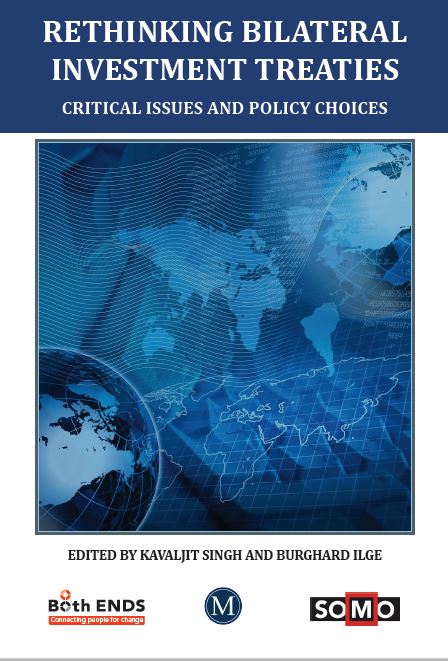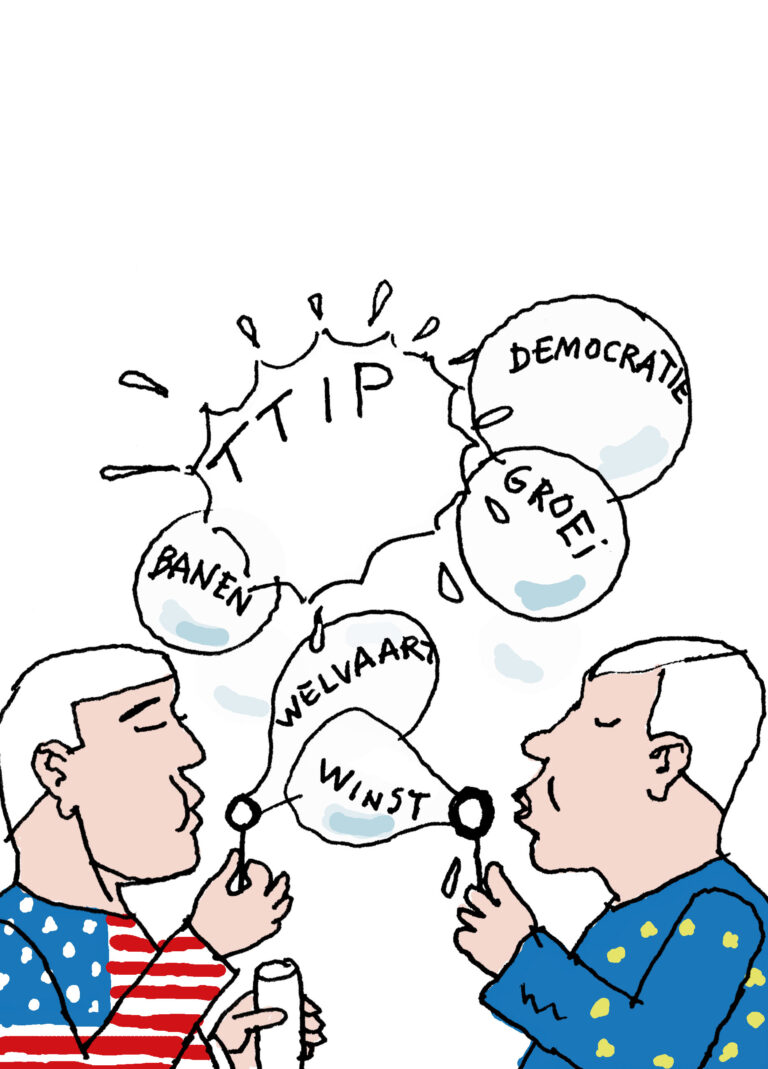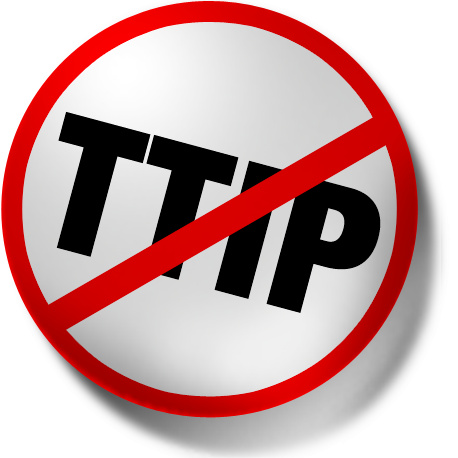
Rethinking Bilateral Investment Treaties – critical issues and policy choices
A spate of mega-regional trade agreements with strong investment protection standards have been recently concluded or are currently under negotiations. The TPP (Transpacific Partnership) and TTIP (Transatlantic Trade and Investment Agreement) are prime examples of this growing trend.
Way back in 1959, Germany and Pakistan signed the first Bilateral Investment Treaty (BIT) in the world. Without knowing, they marked a new era as many countries have followed their example since then. Currently, the international legal system that governs international investment flows consists of about 3000 BITs and other international investment agreements (IIAs).
Costly claims
Rethinking bilateral investment treaties
Trends
A new book published by Both ENDS, Madhyam and SOMO takes stock of current developments and explores alternative approaches to reform investment treaties. It provides an up-to-date account of the model BIT reviews undertaken by South Africa, India and Indonesia. Some of the authors have suggested a broad gamut of useful policy solutions. The book attempts to launch a dialogue among government officials, legal experts drawn from academia, international organizations and civil society groups to address the systemic shortcomings of the current BIT regime.
Protect
“Almost all investment treaties include a so-called ‘Investor to State Dispute Settlement mechanism’ (ISDS), allowing investors to sue their host state when changes to regulations threaten to reduce profits. Many countries have already faced unexpected claims against them, because they wanted to implement new laws or rules to ensure financial stability, or to protect the environment or the health of their people,” says Kavaljit Singh, director of Madhyam, New Delhi.
Ending BITs
“In recent years the awareness about the implications of prior little know international investment agreements has been growing significantly, and the call to roll back their regime is getting stronger. Several developing countries already terminated their BITs or are in the process of doing so. But also in the northern hemisphere the negotiations of new transatlantic trade and investment agreements (CETA and TTIP) have led to a fast growing opposition against the ISDS-system amongst citizens as well as politicians.” Says Burghard Ilge of Both ENDS, the Netherlands
Free download
“The book fills an important void in our understanding of bilateral investment treaty regime that has evolved over the decades. I hope that this free-to-download publication will trigger a constructive public debate on the nature and the quality of cross-border investments. I am sure that such a debate will facilitate cross-border investment flows which are benign and consistent with the interests of the people at large in the recipient countries”, says E. A. S. Sarma, Former Secretary, Department of Economic Affairs, Ministry of Finance, Government of India.
This book will be of prime interest to anyone concerned with issues surrounding bilateral investment treaties and international law. In particular, the book will be useful to policymakers, parliamentarians, private sector companies, NGOs, academics, lawyers, scholars and journalists.
The book is also available for e-reader(opens in new window) .
Partners
Related content
-
Rethinking bilateral investment treaties Published on:
 Roos van OsPosted in category:Publication
Roos van OsPosted in category:Publication Roos van Os
Roos van Os
-
Dutch Bilateral Investment Treaties Published on:
 Roos van OsPosted in category:Publication
Roos van OsPosted in category:Publication Roos van Os
Roos van Os
-
 Dutch Bilateral Investment Treaties: A gateway to ‘treaty shopping’ by multinational corporations for investment protectionPosted in category:NewsPublished on:
Dutch Bilateral Investment Treaties: A gateway to ‘treaty shopping’ by multinational corporations for investment protectionPosted in category:NewsPublished on: -
 After South Africa, Indonesia takes a brave decision to terminate its Bilateral Investment Treaty with the NetherlandsPosted in category:NewsPublished on:
After South Africa, Indonesia takes a brave decision to terminate its Bilateral Investment Treaty with the NetherlandsPosted in category:NewsPublished on: -

-
 TTIP threatens the ability to enforce fair taxes on corporations, according to new researchPosted in category:NewsPublished on:
TTIP threatens the ability to enforce fair taxes on corporations, according to new researchPosted in category:NewsPublished on: -
 TTIP: EU’s trade committee sides with corporate lobbies, leaving social justice and the environment high and dryPosted in category:NewsPublished on:
TTIP: EU’s trade committee sides with corporate lobbies, leaving social justice and the environment high and dryPosted in category:NewsPublished on: -
The Netherlands – still a tax haven Published on:
 Arnold MerkiesPosted in category:Publication
Arnold MerkiesPosted in category:Publication Arnold Merkies
Arnold Merkies

